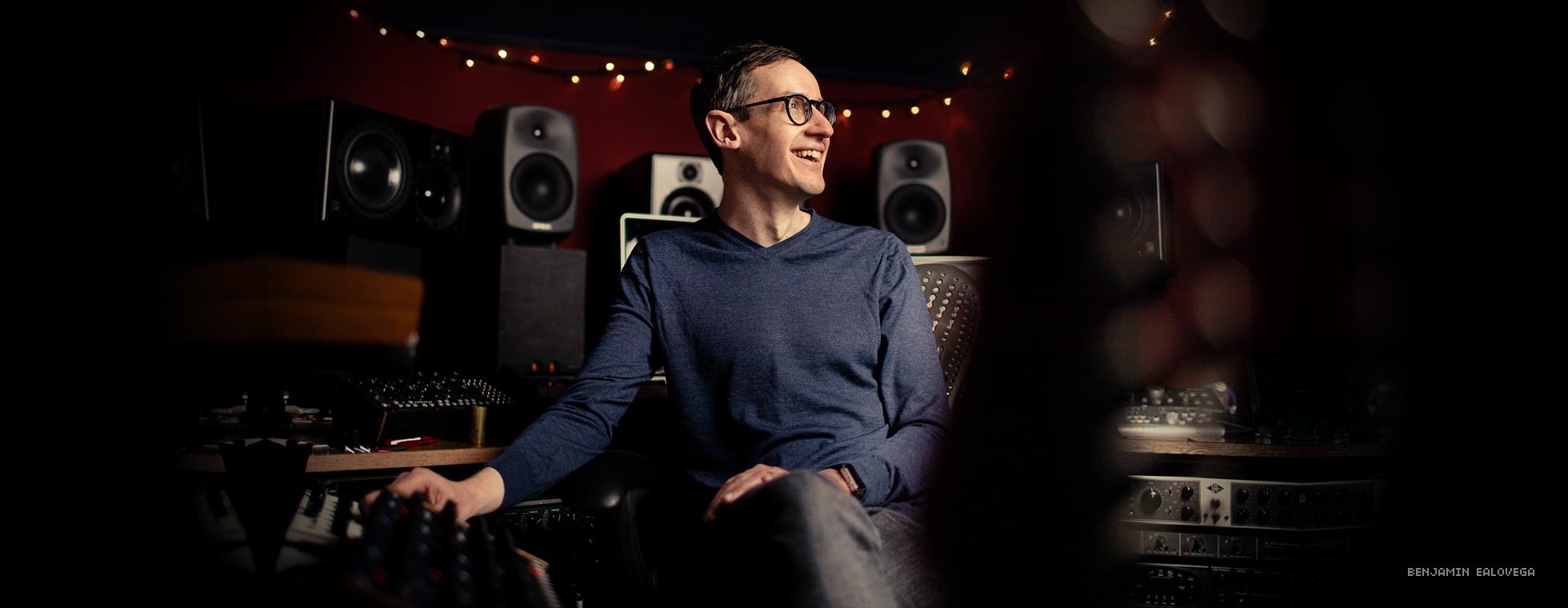Composer Steve Price’s score reveals the emotion of ‘Our Planet’

Cinema score composer Steven Price started his professional career writing music for directors of cult and blockbuster films. In 2014, he won Oscar and BAFTA awards for the original music score for Alfonso Cuarón’s space drama “Gravity.” Recently, he shifted his focus back to Earth to compose music for the Netflix original series “Our Planet” and the live touring program.
The Center for the Performing Arts will present “Our Planet Live in Concert” — featuring members of the Penn State Philharmonic Orchestra — at 7:30 p.m. Tuesday, April 11, in Eisenhower Auditorium.
Question: You have written music for films including “Last Night in Soho,” “Suicide Squad” and “My Policeman” starring Harry Styles. What is different between scoring music for a narrative-style film and a nature-themed documentary program.
Answer: “Scoring ‘Our Planet’ seemed to draw on everything I’d ever learnt. Not only were we telling stories of specific characters and the challenges they might face —whether that be polar bears in the arctic, or maybe leaf cutter ants in the jungle — but we were also trying to capture a more overall narrative, the story of the planet itself in all its interconnected environments.”
Q: In writing music for the visual aspects “Our Planet Live in Concert,” were you conveying an emotion or a place?
A: “To me, every story in the show is emotional in some way. One of the things we often looked to do was to find ways to make huge natural events, such as for example the collapse of a glacier, into quite intimate experiences for the viewer.
“Everything always had to feel like it belonged to the images, and that often meant that I would write differently depending on which environment the story was taking place. The forests material, for example, sounds very different to the grasslands, and the oceans would be different again. The colors, and the feel of each biome on the planet, really required a different way of thinking musically, and that was one of the enjoyable challenges.”
Q: What were the most challenging emotions to arouse in making this soundtrack?
A: “This was the first show that really made climate change the central point of the show, and this can naturally be a very scary and overwhelming thing to face. We didn’t want people to come away from the show feeling like the situation is hopeless, because there are a lot of brilliant people doing brilliant things to turn the situation around. Musically, my job was often to help that emotional journey.
“There are moments when you might laugh, and moments where you might cry, but really we’re looking to celebrate the beautiful planet we share and send people home with optimism. Finding a way to strike the right balance musically was something I spent a lot of time on.”
With the touring production of “Our Planet Live in Concert,” Price became professionally connected to program co-narrator and outer-space royalty William Shatner, known for his contributions to TV, film and spoken word.
Price said the most important aspect of being part of the artistic team that created a meaningful experience was his role in emphasizing how interconnected the Earth’s ecosystems really are. And from a bird’s-eye view of the planet, from space, it is the sum of its parts rather than the individual components, that make the world go around.
“When it comes to caring for the planet, we really are all in it together,” Price said.
Heather Longley is a communications specialist at the Center for the Performing Arts.

